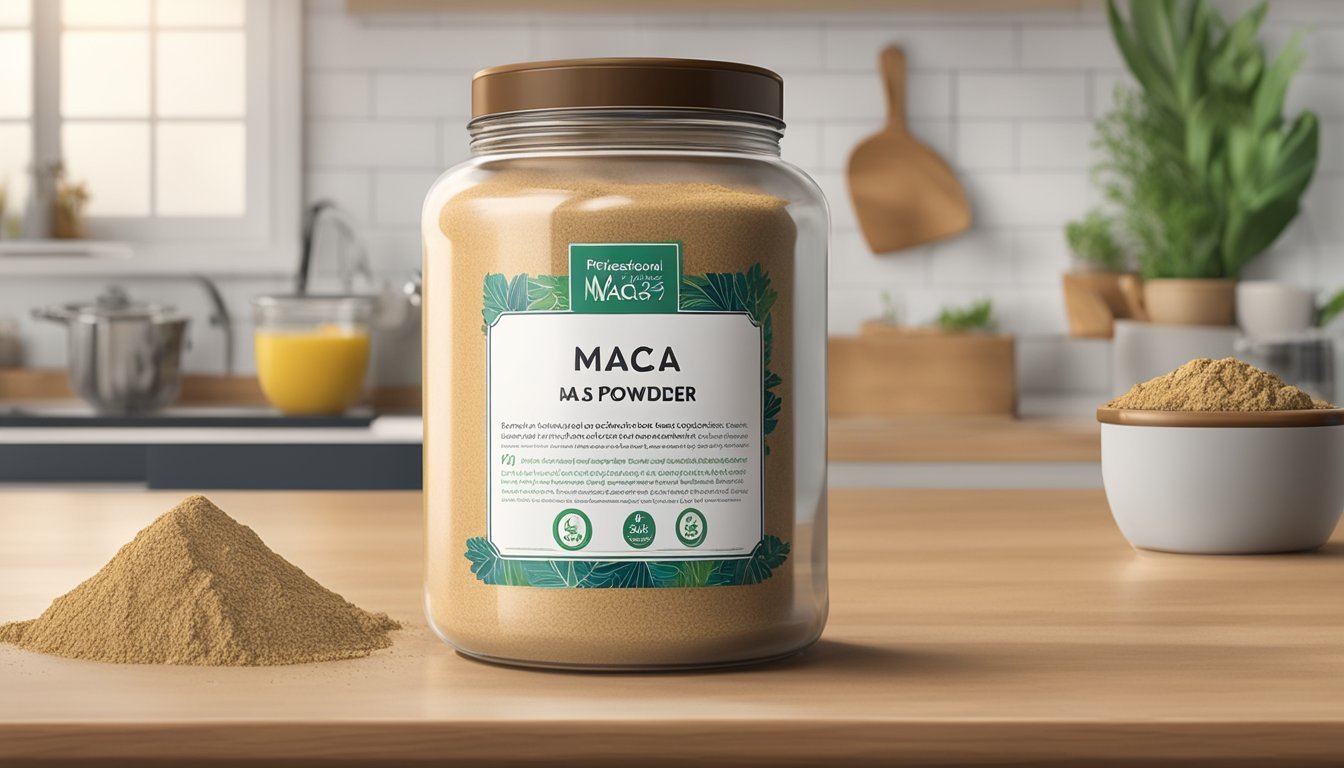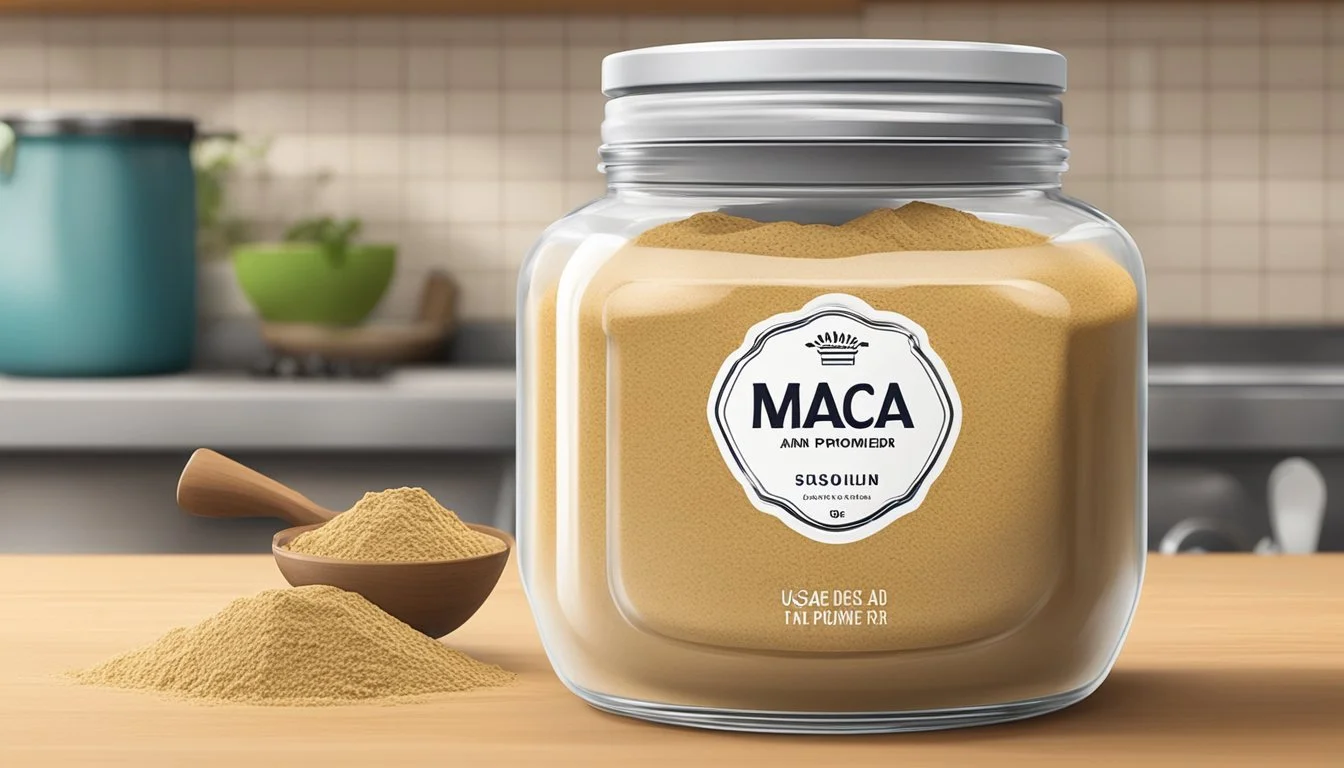Does Maca Powder Go Bad?
Understanding Shelf Life and Storage Tips
Maca powder, derived from the root of the maca plant indigenous to the Peruvian Andes, has gained popularity as a dietary supplement. Packed with essential vitamins and minerals, it is often consumed to enhance energy, mood, and stamina. Health enthusiasts also attribute potential benefits to maca powder such as improving sexual desire and reducing symptoms of menopause, although scientific research is ongoing to fully substantiate these claims.
Like most natural products, maca powder has a finite shelf life, and its efficacy can decline over time. When stored properly, in a cool, dry place away from light, maca retains its quality for several months up to a couple of years. However, exposure to air, moisture, light, and heat can expedite its degradation. It's important for consumers to recognize signs of spoilage, such as changes in color, unpleasant odors, or the appearance of mold, which indicate that the maca powder may no longer be suitable for consumption.
What Is Maca?
Maca, scientifically known as Lepidium meyenii, is a root vegetable indigenous to the high altitudes of the Peruvian Andes. Often referred to as "Peruvian ginseng," although not related to true ginseng, maca has been valued for its nutritional and medicinal properties for thousands of years by the indigenous population.
As a cruciferous vegetable, maca is related to broccoli, cauliflower, and kale, and possesses a unique profile of vitamins, minerals, and plant compounds. Culturally significant, maca has been used both as food and in traditional medicine. The root is typically dried and powdered, used in various culinary applications due to its nutty and earthy flavor.
In terms of health applications, maca root has sparked interest for its potential benefits including enhancing fertility, boosting energy, and even helping with symptoms associated with menopause. Scientific studies have begun to explore and substantiate some of these traditional uses, particularly its effects on sexual health and hormone balance.
The cultivation of maca is deeply intertwined with Peruvian heritage, and it continues to hold a revered place in contemporary Peruvian culture. As a staple of the local diet, maca's popularity has surged globally, leading to increased interest in its preservation, sustainability, and proper storage to maintain its quality and benefits.
The Health Benefits of Maca
Maca is a renowned adaptogen that originates from Peru, boasting a rich tapestry of health benefits that extend across various aspects of well-being. From elevating energy levels to supporting reproductive health, this root vegetable serves as a multipurpose supplement.
Boosting Energy and Stamina
Maca is often sought after for its energizing properties. Advocates suggest that incorporating maca into one's diet can lead to increased energy and stamina throughout the day. Unlike caffeine, which can cause jitters, maca provides a stable boost without the abrupt crash.
Enhancing Sexual Function and Libido
The root is traditionally used to enhance sexual function and boost libido. Several studies suggest that maca can improve sexual desire in both men and women, making it a popular alternative remedy for those looking to improve their sexual well-being.
Fertility Enhancements
Maca has been favorably linked with fertility enhancements, particularly in men. Research indicates that it may improve sperm concentration and motility, potentially offering an edge to those facing fertility challenges.
Balancing Hormones and Menopause Symptoms
For individuals navigating the hormonal fluctuations of menopause, maca may offer relief. It is said to help balance hormone levels, which can alleviate common symptoms of menopause, such as hot flashes and mood swings, contributing to a more stable hormonal environment.
Mood Improvement and Stress Reduction
As an adaptogen, maca is believed to help the body manage stress more effectively. This can translate to mood improvements and a reduction in stress levels. People who regularly consume maca report feeling less anxious and more capable of handling day-to-day pressures.
Usage and Dosage
Maca powder offers versatility in usage, ranging from culinary applications to inclusion in dietary supplements. Its dosage varies depending on the form and desired benefits.
Maca Powder in Cuisine
Maca powder can be a valuable addition to a variety of recipes. It's known for its earthy flavor, which pairs well with sweet and savory dishes alike. In cooking, it’s often used in small quantities to enrich foods without overpowering other ingredients. Maca powder can be seamlessly incorporated into:
Smoothies: A teaspoon or two adds a nutritional boost.
Baked Goods: Mix into batters for bread, muffins, or pancakes.
Energy Bars: Sprinkle into homemade bars for an extra energy lift.
One should start with a small amount and adjust according to taste and desired effect.
Maca in Supplements
Maca is also available in capsules, which provide a convenient dosage form. The capsules are designed to deliver the benefits of maca without the need for preparation or recipe creation. It's crucial to follow the manufacturer's dosage recommendations on the packaging for optimal results. However, the standard dose used in studies varies but is commonly around 1500 mg - 3000 mg taken daily.
Recommended Daily Dosage
Since maca is not regulated like a medication, there's no official recommended daily allowance. Research and user experience have informed the following dosage guidance:
Standard dose: 1500 mg - 3000 mg
Culinary use: 1-2 teaspoons of maca powder
These dosages are typically taken with food and may be adjusted depending on individual tolerance and objectives. Users should consult with a healthcare provider before incorporating maca into their daily regimen, especially at higher doses or for extended periods.
Storing Maca Powder Correctly
Proper storage of maca powder ensures its freshness and potency over time, safeguarding against environmental factors that can lead to spoilage.
Ideal Conditions for Preservation
Maca powder thrives in a cool, dry place away from direct light and heat. Maintaining these conditions is crucial for preserving the powder's shelf life and preventing degradation of its nutritional value. Exposure to air and moisture is a significant enemy of maca powder’s freshness, which makes an airtight container an ideal choice for storage.
Temperature: Keep below room temperature.
Humidity: Store in low humidity environments.
Potential Spoilage Signs
Recognizing the signs of spoilage can prevent the consumption of compromised maca powder. A change in color, often a deviation from its natural beige or light brown, is an indicator. An unpleasant smell is another red flag, as fresh maca powder has an earthy aroma. If you detect sourness or any off-odors, it's best not to use the product.
Color: Beige or light brown is ideal; discoloration may indicate spoilage.
Smell: Earthy scent should be present; unpleasant smells suggest it's time to discard.
Extending Shelf Life
An unsealed package of maca powder is generally best used within one month, but there are ways to extend its longevity. Freezing the powder can help prolong its shelf life while keeping its potency intact. If you choose to freeze maca powder, it's imperative to use an airtight container or a sealable freezer bag to prevent moisture accumulation.
Packaging: Use airtight containers or sealable bags.
Freezing: Freeze to extend shelf life; ensure protection from air and moisture.
Side Effects and Considerations
Maca powder is generally well-tolerated, but like all supplements, it may cause side effects in some individuals and should be taken with care under certain conditions or when interacting with other substances.
Common Side Effects
Maca root powder can cause some side effects including, but not restricted to:
Mood swings
Digestive issues
Increased sexual desire
Individual responses to maca can vary, and therefore, monitoring for any adverse reactions is prudent. It is especially crucial for those who may be more sensitive or who have preexisting health conditions.
Special Considerations in Certain Conditions
Certain conditions call for special attention when considering maca supplementation:
Hormone-sensitive conditions such as endometriosis, uterine fibroids, and certain cancers: Maca can potentially affect hormone levels.
Pregnancy and nursing: There is not enough research to confirm the safety of maca during pregnancy or lactation. Therefore, consulting a healthcare professional is advised.
Thyroid health: Individuals with thyroid issues should be cautious as maca contains goitrogens, substances that may interfere with normal thyroid functioning.
Patients are encouraged to discuss potential risks with a doctor before beginning supplementation, particularly if they have any of the abovementioned conditions.
Interactions with Other Substances
The possibility of maca interacting with other substances, particularly medications, is an important consideration:
Prescription medications for sexual dysfunction or erectile dysfunction
Treatments for hot flashes or insomnia
Antidepressants, especially those that cause antidepressant-induced sexual dysfunction
While there is no extensive evidence of interactions, the potential for maca to influence other treatments or supplements exists. Users should always consult with a healthcare professional to ensure safety and avoid unwanted interactions.
Nutritional Profile of Maca
Maca root, derived from the plant Lepidium meyenii, boasts a rich nutritional profile. It is particularly valued for its diverse range of nutrients and potential benefits related to sexual desire and fertility.
Nutrients: The maca root contains essential amino acids, which are the building blocks of proteins and critical for many cellular functions. These amino acids include:
Alanine: 6.3 mg
Arginine: 9.9 mg
Aspartic Acid: 9.2 mg
Glutamic Acid: 15.7 mg
These are based on a standard 10 g serving of maca root. In addition to this, maca is a good source of various vitamins and minerals including:
Vitamin C
B vitamins
Calcium
Nutritional Value: Maca is recognized for its high nutritional value. It contains fibers and unsaturated fatty acids, which contribute to its overall health benefits. Compared to other root vegetables, maca stands out as a superior source of these nutrients.
The consumption of maca extracts is often linked to improved sexual desire and has been said to potentially enhance sperm motility, which can play a role in boosting fertility in men. While the evidence for these effects is still being researched, the nutritional components of maca extracts are well-established.
Calcium and Other Minerals: The presence of calcium in maca underscores its nutritional significance, given calcium's role in bone health, muscle function, and nerve signaling.
Overall, maca's reputation as a nutritious supplement is supported by its versatile nutrient composition. As a part of a balanced diet, maca can contribute to maintaining various aspects of good health.
Consulting a Healthcare Professional
When considering the inclusion of maca powder in one's diet, especially in forms such as liquid, maca capsules, or the traditional powder, consulting with a healthcare professional is strongly recommended. Healthcare professionals, including doctors, registered dietitians, and physicians, are equipped to provide advice on the safety and potential positive effects of maca, taking into account individual health circumstances.
For individuals seeking natural remedies for conditions such as low libido or seeking improvements in semen quality, maca has been traditionally used. However, scientific evidence should be considered and discussed with a healthcare professional before starting any new supplementation. They can guide dosage and form—whether to use powder, liquid, or capsules—and monitor for any interactions with existing medications or conditions.
Additionally, those with concerns about specific health issues such as ovarian cancer should seek medical guidance. Some natural supplements might have constituents that could affect the healing process or interact with treatments. Only a qualified professional can assess the risks and benefits in the context of a patient's clinical history.
In conclusion, while maca is reputed for various health benefits, every individual's response can differ. A healthcare professional can provide personalized, evidence-based advice to ensure safety and efficacy.









